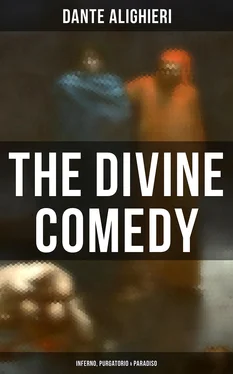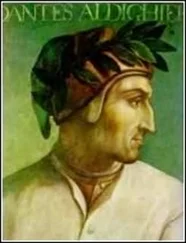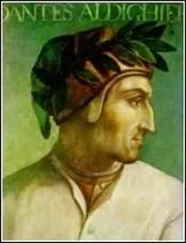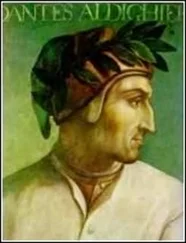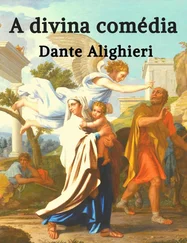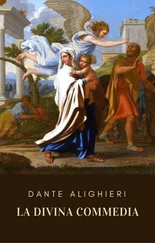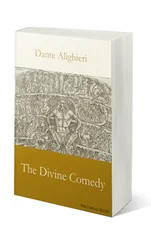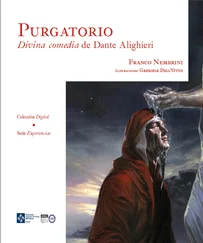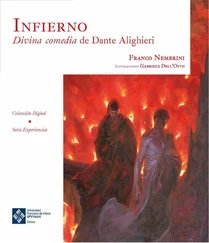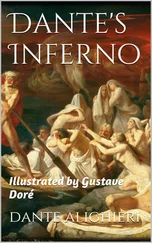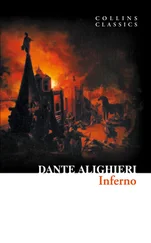Who were infected with these maladies."
And he to me: "Vain thought thou entertainest;
The undiscerning life which made them sordid
Now makes them unto all discernment dim.
Forever shall they come to these two buttings;
These from the sepulchre shall rise again
With the fist closed, and these with tresses shorn.
Ill giving and ill keeping the fair world
Have ta'en from them, and placed them in this scuffle;
Whate'er it be, no words adorn I for it.
Now canst thou, Son, behold the transient farce
Of goods that are committed unto Fortune,
For which the human race each other buffet;
For all the gold that is beneath the moon,
Or ever has been, of these weary souls
Could never make a single one repose."
"Master," I said to him, "now tell me also
What is this Fortune which thou speakest of,
That has the world's goods so within its clutches?"
And he to me: "O creatures imbecile,
What ignorance is this which doth beset you?
Now will I have thee learn my judgment of her.
He whose omniscience everything transcends
The heavens created, and gave who should guide them,
That every part to every part may shine,
Distributing the light in equal measure;
He in like manner to the mundane splendours
Ordained a general ministress and guide,
That she might change at times the empty treasures
From race to race, from one blood to another,
Beyond resistance of all human wisdom.
Therefore one people triumphs, and another
Languishes, in pursuance of her judgment,
Which hidden is, as in the grass a serpent.
Your knowledge has no counterstand against her;
She makes provision, judges, and pursues
Her governance, as theirs the other gods.
Her permutations have not any truce;
Necessity makes her precipitate,
So often cometh who his turn obtains.
And this is she who is so crucified
Even by those who ought to give her praise,
Giving her blame amiss, and bad repute.
But she is blissful, and she hears it not;
Among the other primal creatures gladsome
She turns her sphere, and blissful she rejoices.
Let us descend now unto greater woe;
Already sinks each star that was ascending
When I set out, and loitering is forbidden."
We crossed the circle to the other bank,
Near to a fount that boils, and pours itself
Along a gully that runs out of it.
The water was more sombre far than perse;
And we, in company with the dusky waves,
Made entrance downward by a path uncouth.
A marsh it makes, which has the name of Styx,
This tristful brooklet, when it has descended
Down to the foot of the malign gray shores.
And I, who stood intent upon beholding,
Saw people mud-besprent in that lagoon,
All of them naked and with angry look.
They smote each other not alone with hands,
But with the head and with the breast and feet,
Tearing each other piecemeal with their teeth.
Said the good Master: "Son, thou now beholdest
The souls of those whom anger overcame;
And likewise I would have thee know for certain
Beneath the water people are who sigh
And make this water bubble at the surface,
As the eye tells thee wheresoe'er it turns.
Fixed in the mire they say, 'We sullen were
In the sweet air, which by the sun is gladdened,
Bearing within ourselves the sluggish reek;
Now we are sullen in this sable mire.'
This hymn do they keep gurgling in their throats,
For with unbroken words they cannot say it."
Thus we went circling round the filthy fen
A great arc 'twixt the dry bank and the swamp,
With eyes turned unto those who gorge the mire;
Unto the foot of a tower we came at last.
Canto VIII. Phlegyas. Philippo Argenti. The Gate of the City of Dis.
Table of Contents
I say, continuing, that long before
We to the foot of that high tower had come,
Our eyes went upward to the summit of it,
By reason of two flamelets we saw placed there,
And from afar another answer them,
So far, that hardly could the eye attain it.
And, to the sea of all discernment turned,
I said: "What sayeth this, and what respondeth
That other fire? and who are they that made it?"
And he to me: "Across the turbid waves
What is expected thou canst now discern,
If reek of the morass conceal it not."
Cord never shot an arrow from itself
That sped away athwart the air so swift,
As I beheld a very little boat
Come o'er the water tow'rds us at that moment,
Under the guidance of a single pilot,
Who shouted, "Now art thou arrived, fell soul?"
"Phlegyas, Phlegyas, thou criest out in vain
For this once," said my Lord; "thou shalt not have us
Longer than in the passing of the slough."
As he who listens to some great deceit
That has been done to him, and then resents it,
Such became Phlegyas, in his gathered wrath.
My Guide descended down into the boat,
And then he made me enter after him,
And only when I entered seemed it laden.
Soon as the Guide and I were in the boat,
The antique prow goes on its way, dividing
More of the water than 'tis wont with others.
While we were running through the dead canal,
Uprose in front of me one full of mire,
And said, "Who 'rt thou that comest ere the hour?"
And I to him: "Although I come, I stay not;
But who art thou that hast become so squalid?"
"Thou seest that I am one who weeps," he answered.
And I to him: "With weeping and with wailing,
Thou spirit maledict, do thou remain;
For thee I know, though thou art all defiled."
Then stretched he both his hands unto the boat;
Whereat my wary Master thrust him back,
Saying, "Away there with the other dogs!"
Thereafter with his arms he clasped my neck;
He kissed my face, and said: "Disdainful soul,
Blessed be she who bore thee in her bosom.
That was an arrogant person in the world;
Goodness is none, that decks his memory;
So likewise here his shade is furious.
How many are esteemed great kings up there,
Who here shall be like unto swine in mire,
Leaving behind them horrible dispraises!"
And I: "My Master, much should I be pleased,
If I could see him soused into this broth,
Before we issue forth out of the lake."
And he to me: "Ere unto thee the shore
Reveal itself, thou shalt be satisfied;
Such a desire 'tis meet thou shouldst enjoy."
A little after that, I saw such havoc
Made of him by the people of the mire,
That still I praise and thank my God for it.
They all were shouting, "At Philippo Argenti!"
And that exasperate spirit Florentine
Turned round upon himself with his own teeth.
We left him there, and more of him I tell not;
But on mine ears there smote a lamentation,
Whence forward I intent unbar mine eyes.
And the good Master said: "Even now, my Son,
The city draweth near whose name is Dis,
With the grave citizens, with the great throng."
And I: "Its mosques already, Master, clearly
Within there in the valley I discern
Vermilion, as if issuing from the fire
They were." And he to me: "The fire eternal
That kindles them within makes them look red,
As thou beholdest in this nether Hell."
Then we arrived within the moats profound,
That circumvallate that disconsolate city;
The walls appeared to me to be of iron.
Not without making first a circuit wide,
We came unto a place where loud the pilot
Cried out to us, "Debark, here is the entrance."
Читать дальше
